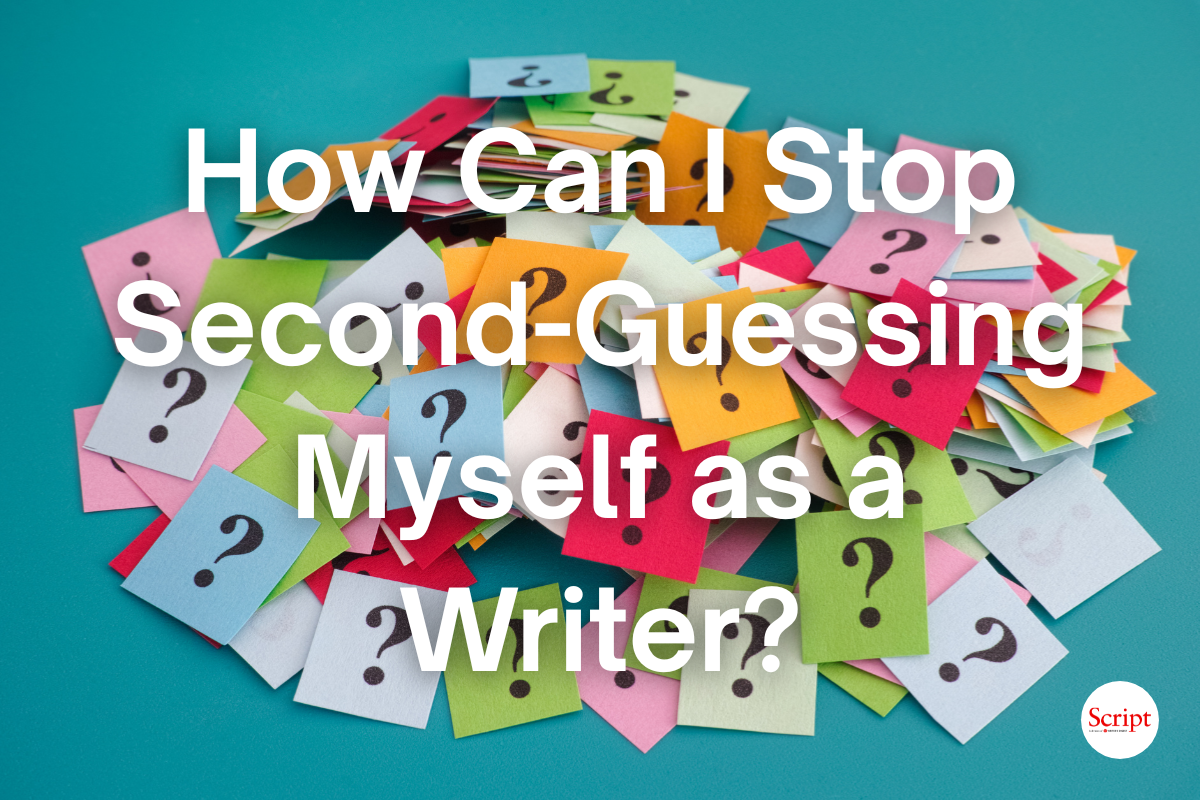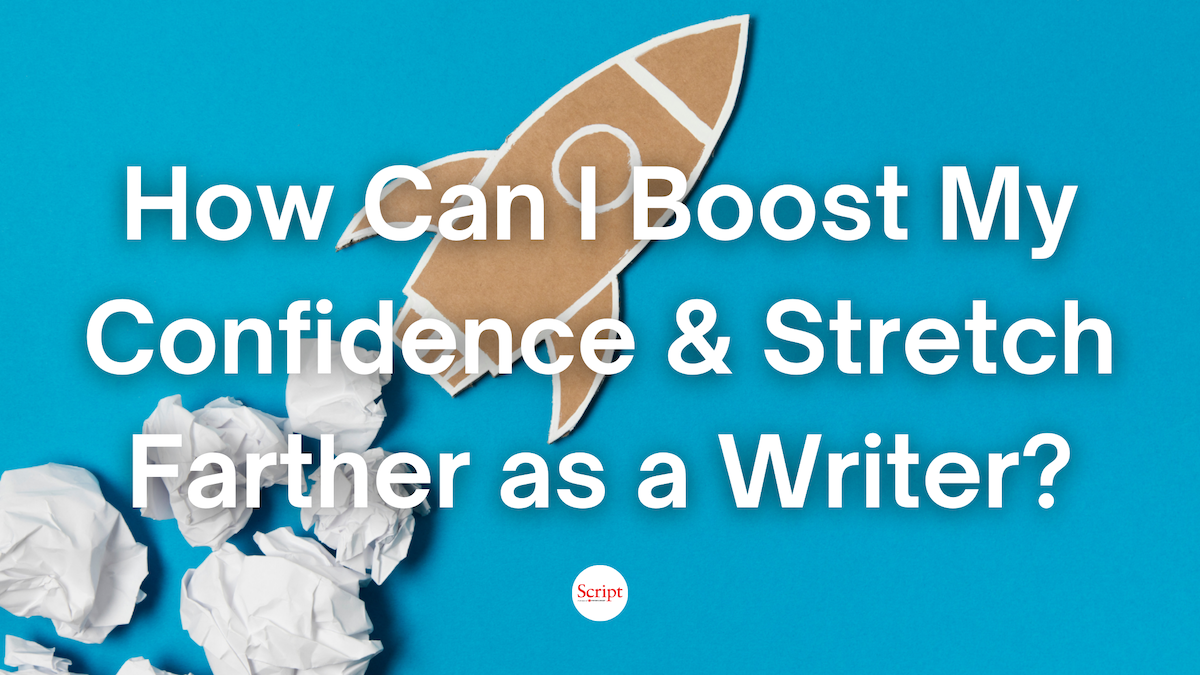How Can Writers Deal with Procrastination?
Many writers struggle with a lack of confidence and procrastination, and it does impact how much we write. Procrastination isn’t a struggle for only new writers — experienced, professional writers have to deal with it too. Let’s unpack this — there’s a lot to it.
Welcome to “Ask the Coach.” As a writing coach, I answer questions from writers about making the work of writing happen, tackling craft, business, and personal questions along the way. (Have a question you’d like answered? Check the details at the end of the article about how to submit one.)
Today I’m responding to a comment about handling procrastination:
“I think the most common obstacle new writers face is that they just don’t write enough for various reasons, including a lack of confidence and procrastination. It’s something that I never see discussed.“
As someone who talks about handling procrastination all the time, it feels like writers must be so sick of me talking about it (and procrastination’s close cousins, perfectionism and paralysis). I’m glad you asked so I have a chance to stand on my soap box again.
You’re right — many writers struggle with a lack of confidence and procrastination, and it does impact how much we write. Procrastination isn’t a struggle for only new writers — experienced, professional writers have to deal with it too.
Let’s unpack this — there’s a lot to it.
We procrastinate because we’re afraid.
Let’s talk about why we procrastinate. Many writers come to me saying they are lazy or too busy to write. I rarely believe either one.
I no longer see procrastination as laziness, but rather as an issue of fear. After reading Steven Pressfield’s seminal book, The War of Art, I came to understand procrastination, perfectionism, paralysis, and self-doubt as symptoms of resistance, an oppositional force that stops us from writing and fulfilling our goals. Underlying that resistance is usually fear — of failure, success, attention, not being “good enough,” etc.
In other words, we resist writing because we are afraid to fail, afraid to succeed, afraid we’ll attract too much attention, afraid we won’t be good enough, and more.
We procrastinate because writing matters to us.
Let’s also acknowledge another aspect of procrastination: Writing is a big dream. It matters to us. While we might think we would naturally be taking action on something important, that’s not actually true. Those aforementioned fears are a big culprit.
In fact, the amount of resistance, dread, and procrastination we experience will arise in direct proportion to how much writing matters to us. It’s crazy-making, but true. When you really care about writing, your discomfort levels will match it.
We procrastinate to manage challenging emotions.
From the New York Times article: “Procrastination isn’t a unique character flaw or a mysterious curse on your ability to manage time, but a way of coping with challenging emotions and negative moods induced by certain tasks — boredom, anxiety, insecurity, frustration, resentment, self-doubt and beyond.”
This perspective on procrastination adds an important nuance to the concept of resistance and aligns with another issue I work with clients and for myself — the urge to turn to a device or otherwise “check out” as a way to deal with uncomfortable emotions like anxiety or overwhelm — even boredom. Procrastination can be a form of checking out, but it’s also a way to try to feel better.
We procrastinate to get dopamine hits.
A therapist once made a valuable distinction for me between serotonin and dopamine boosts in our brain chemistry.
Serotonin boosts, which are better for us but harder to "earn" because they require more effort, come from pushing ourselves toward activities we resist but feel better for having done. This can include things like writing, exercising, making meaningful connections with others, and other self-improvement activities.
Dopamine boosts, on the other hand, are readily available and are more passively "earned" (email checking, show watching, social media scrolling) and are easy to fall into, aka procrastinate with.
When we’re uncomfortable emotionally, we turn to procrastination in the form of anything that provides a hit of dopamine (“I’m just gonna check Twitter real quick.”) or something that gives us a sense of control or accomplishment (cleaning the toilet can be quite satisfying), because it feels better right now, in this moment.
But in the long term, these activities erode our confidence and the trust we otherwise build in ourselves when we do the hard work.
We procrastinate to process intuition and information.
I also recognize that procrastination is occasionally — albeit far more rarely — an expression of intuition.
Sometimes we know deep down when a story needs to “cook” a bit more before we write it.
Or we need our back brains to work on the concept before we sit down.
How do we tell the difference between procrastination and intuition guiding us to slow down a bit? Experience, practice, and self-trust are key, as is the willingness to be wrong and challenge ourselves each and every time. Am I avoiding this because I’m feeling uncomfortable in some way, or does this need some breathing space?
How can we manage procrastination?
First, we seek to understand procrastination and how it works to demystify what’s going on.
Second, we find ways to get ourselves into action.
Remembering that we’re most likely struggling to manage deeply uncomfortable emotions will help us find our way to solutions.
For example, you might reflect on how to take care of yourself as you move forward with writing while acknowledging the discomfort. This could include working with a therapist or a coach, and finding ways to make writing feel “safe.” (I’m a fan of taking my laptop and writing from bed during my most perilous writing moments.)
Or, you might try to rewrite negative thoughts you’re saying to yourself, for example changing something like, “What if I can’t do this? What if I’m not good enough?” into something more supportive: “It’s OK to be learning as I write, and to become the writer who can write this as I create it.”
You might also look for ways to create community and support around writing with other writers who won’t fall for the clever stories resistance throws your way and will help you do the work of writing no matter what.
You can consider using deadlines and other external motivations (rewards or punishments, for example) to help you get and stay in action.
You can craft writing plans and set goals to help you pace your work and avoid last-minute binge writing, which often results in more writing avoidance, even though it can feel amazing in the moment.
You might work to create a regular writing practice that helps you keep moving forward, even on the hard days.
***
That’s a Wrap — And Also a Beginning
Resistance and procrastination are so stealthy that it’s easy to fall for their tricks and subterfuge. My goal here today is to help you see through the smokescreens and understand what’s really going on so you can be creative about devising solutions that work for you.
The bottom line is that we procrastinate for very real reasons — primarily uncomfortable and challenging emotions as well as the meaning of the work to us — which can be addressed through self-care, support, and strategies to write that help us keep writing.
***
Screenwriters, what challenges do you run into that you'd love to see us address in our articles? Take our short survey here.
***
Submit your question to be answered anonymously via my online form here or email directly to askthecoach@calledtowrite.com. Look for answers to selected questions in my monthly “Ask the Coach” column on the third Thursday of the month. And reach out to me on Twitter to share your thoughts: @JennaAvery.







